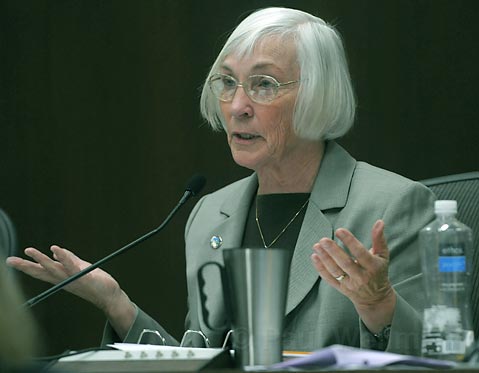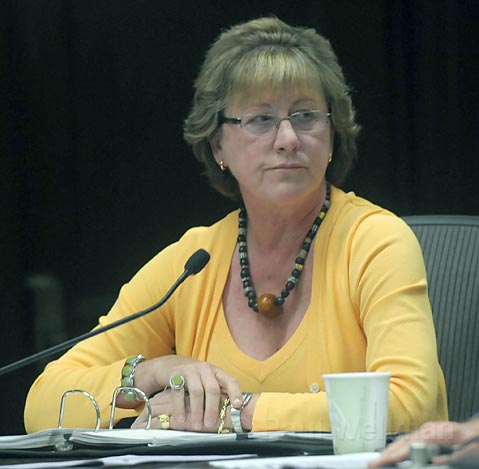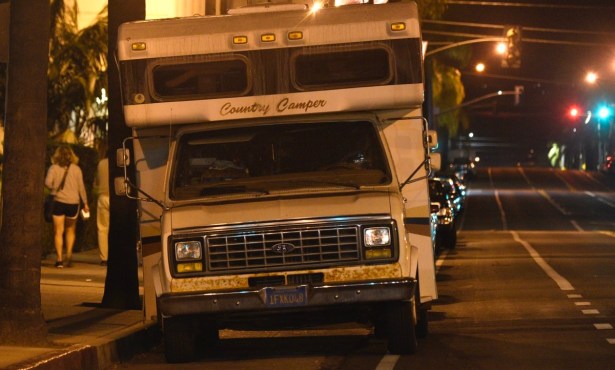When the Political Gets Personal
Contract Disputes Roil Council Deliberation

It was all elbows and knives at the Santa Barbara City Council chambers Tuesday afternoon, as elected officials tussled over a proposal to delay for two weeks the ratification of a relatively small union contract in deference to City Hall’s mounting fiscal woes.
Councilmembers Dale Francisco and Iya Falcone argued that the 4-percent-over-two-years wage hike negotiated by the Service Employees International Union (SEIU) on behalf of waterfront security workers, water plant employees, and water treatment plant employees and their supervisors had touched off a firestorm of community discontent. Francisco and Falcone requested a two-week “breathing spell” to give the council an opportunity to discuss how its labor agreements fit into the city’s broader budgetary future.

Francisco lamented the 11-percent plunge in city sales taxes from December 2008 over the previous year’s-a 3-percent drop had been anticipated-as well as a 20-percent drop in bed taxes. “We have not seen these types of declines in decades,” he said. Francisco worried that by issuing pay raises now, City Hall might find itself forced to lay off employees in the near future.
“Do we take a breath, a quick breath of a couple of weeks, to reevaluate where are we?” asked Falcone. Last week, Falcone not only voted in favor of the contract in question but also spoke in favor of it.
That contract has been the subject of intense attack by the Santa Barbara County Taxpayers Association, Santa Barbara News-Press editorial pages, and many political activists affiliated with Safe Streets for Santa Barbara. Falcone acknowledged that SEIU might be “the fall guy” in the public discussion, but warned that the public was trying to communicate that it has had enough.
Mayor Marty Blum, now at the end of her eight-year term, dismissed the Falcone-Francisco proposal as election-year grandstanding. “We’re looking at a very political item,” she said. “People are looking at this because they’re running for something, because there’s an election going on. I think that’s a shame.” Francisco denied he was running for office, and Falcone, her face reddened, replied, “I’m not going to dignify the petty remarks I heard a little while ago.”
With the exception of one homeless man named Lazarus-who said he’d been a union member in a previous incarnation-all the public speakers voiced serious concern with the recent contract in face of the $9.2 million budget deficit projected for the city in the coming fiscal year. No one supported the contract. Lanny Ebenstein of the Taxpayers Association-who released a study last week purporting to show city employees to be grossly underworked and overpaid-argued that the contract should be rejected.
Councilmember Das Williams blistered the news coverage of the contract, saying it failed to mention the $600,000 in concessions that SEIU negotiators had agreed to in the form of work furloughs-mandatory unpaid vacations-and by agreeing not to cash out accrued vacation time. He argued that the city’s ailing general fund will realize a net benefit as a result of the contract, while the city’s Waterfront Department-financially self-sustaining and relatively better off-will cover the bulk of the pay increases. Williams was decidedly not moved by Falcone’s plea for more time. “I think we talk too much,” he said. “I think we need to take action.”
Talk of union contracts, union campaign contributions, and budget negotiations is always a politically volatile subject, but rarely so much as it is now. The two leading mayoral candidates-Iya Falcone and fellow councilmember Helene Schneider-have drawn strong financial support from different unions throughout their career. Whereas Falcone has been endorsed strongly by the Police Officers Association and Firefighters for Better Government, Schneider can bank on support from SEIU. Recently, SEIU has become the focus of much criticism from the Taxpayers Association and the Santa Barbara News-Press, which editorialized that Schneider had almost single-handedly bankrupted City Hall with her support of the SEIU contract. Also, at least one former city council candidate, Terry Tyler, argued that no one taking money from SEIU should have voted on the waterfront contract.
But for all SEIU’s largesse-it has donated $31,000 to various council and mayoral candidates since 2005-its donations pale when compared to the police and firefighters organizations. Likewise, the pay raises negotiated by the two public safety unions dwarf those secured by SEIU. (Police officers secured a 26.5-percent increase in pay and benefits over 3.5 years during its last negotiation. Firefighters got 24.8 percent over the same period. General employees-represented by SEIU-received closer to 5.1 percent over two years.)
Of the three major unions, SEIU has been more responsive to City Hall’s fiscal crisis. It remains the only bargaining unit to formally agree to “meet and confer” with City Hall negotiators about such painful issues as furloughs, deferred pay raises, and vacation pay freezes. Anxious to secure a no-layoff commitment from City Hall, SEIU has been willing to negotiate contract give-backs and has been doing so on a weekly basis since February. No deal, however, has been reached. The two public safety unions, by contrast, have been willing to meet with city negotiators on an informal basis to determine what, if anything, there is to discuss.
Given the political showdown now unfolding between Schneider and Falcone for the mayoral seat, it was inevitable that their respective union backers would get dragged into the fray. The police union is so supportive of Falcone that it denied Schneider the customary courtesy of an endorsement interview with the union’s political committee earlier this year. Little wonder that Schneider was quick to challenge what many consider the most politically influential union on the South Coast.
Schneider has noted how police unions in Sacramento and Redlands voluntarily accepted mandatory unpaid vacations, with no loss of public safety coverage. On Tuesday, she predicted the union could save City Hall $250,000 if it agreed its members could not cash out their unpaid vacation time. And, she said, the Police Officers Association could save another $333,000 by deferring the pay increase that’s scheduled to take effect this April. That’s more than $500,000, she said, it could save the city “with no changes whatsoever in staffing.”



